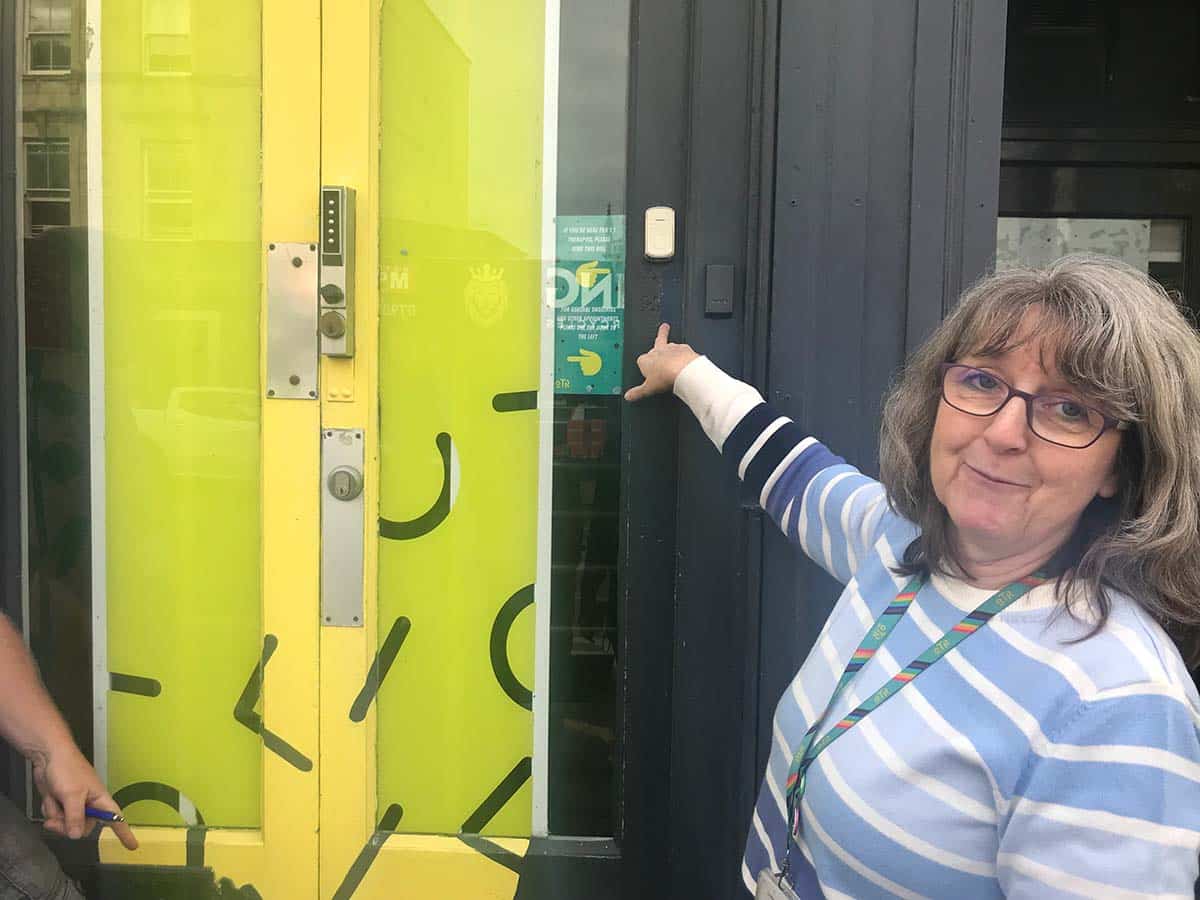Case Study: OTR
See how we increased awareness surrounding inclusion and accessibility for OTR, and enabled then to ensure they make everyone feel comfortable, listened to and centred.
Overview
OTR is a mental health social movement by and for young people aged 11-25 in Bristol, South Gloucestershire and North Somerset. They offer a variety of projects to promote good mental health and wellbeing, and empower young people to support themselves and their communities. However, they’re not just a charity providing mental health services – they’re a mental health social movement mobilised to support, promote and defend the mental health, rights and social position of young people. OTR is free, confidential and self-referral.
The charity recognised that there was a lack of understanding and provision for Disability within the organisation, particularly in their workforce and some of their buildings; WECIL provided inclusion training for their staff and a physical audit to help the organisation centre Disability.


The Problem
It was becoming increasingly clear for OTR that they had a very neurodiverse workforce and old buildings which weren’t accessible to those with mobility issues. They also recognised that neurodiversity was often raised with the people that the organisation supports, but less so with staff. As an organisation that talks a lot about these subjects, it was particularly important for them that diversity and Disability be higher on the agenda.
They needed to improve accessibility for their staff and volunteers to allow them to do their jobs to the best of their ability, and in turn to deliver their services effectively. This knowledge would also help the organisation as a whole become more accessible for the young people that the charity supports. One of the key challenges with this project was that OTR’s buildings were old with difficult layouts to work around.
Our Solution
WECIL approached the problem through an initial consultation to figure out what could and couldn’t be done, followed by providing Disability Equality Training for OTR’s management team. This was delivered by Disabled people with lived experience and specifically pitched for the type of organisation. WECIL also conducted an access audit of one of OTR’s key buildings in Bristol. Our approach was non judgemental, solution focused and understanding of the limitations of the Grade 2 listed building.
We were able to provide a different viewpoint and point out various adjustments that could be made to improve accessibility, such as ensuring all ground floor levels are accessible for staff and young people to access the relevant services. For OTR they were able to come away with some valuable quick-win solutions as well as longer term actionable information to help them develop their accessibility and inclusion plans in the future.



The Outcome
For OTR the outcome has been an overall increase of awareness surrounding inclusion and accessibility which can be acted upon and incorporated into future decisions. WECIL’s training has shaped how managers will now approach conversations with their staff; rather than the onus being on the disabled person, the organisation is now in a better position to make everyone feel comfortable, listened to and centred.
OTR is now equipped to put in place the systems to be able to better support staff, and the organisation continues to look forward to developing their partnership with WECIL.
What They Say
‘So far I’ve been really impressed with everyone I’ve come across at WECIL – they are very supportive, very friendly and very non judgemental. I’m looking forward to developing the relationship and working more closely with them in the future’.
Susan Parry | Facilities & Resources Manager


